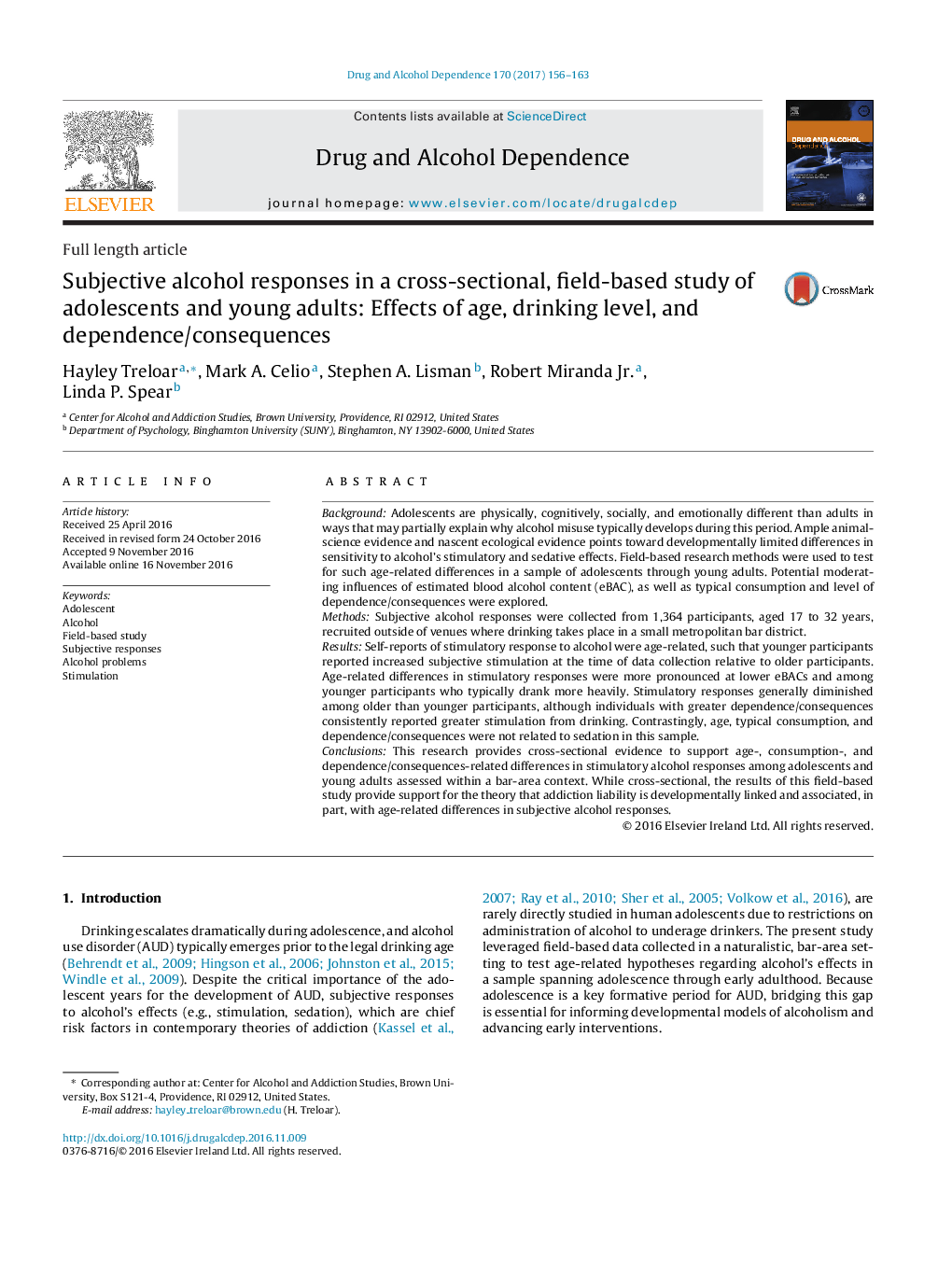| Article ID | Journal | Published Year | Pages | File Type |
|---|---|---|---|---|
| 5120308 | Drug and Alcohol Dependence | 2017 | 8 Pages |
â¢A large field study of age-related differences in the acute effects of alcohol.â¢Stimulation and sedation were reported by 1737 participants, aged 17 to 32 years.â¢Younger participants reported greater stimulation, but no differences in sedation.â¢Findings support the theory that addiction liability is developmentally linked.
BackgroundAdolescents are physically, cognitively, socially, and emotionally different than adults in ways that may partially explain why alcohol misuse typically develops during this period. Ample animal-science evidence and nascent ecological evidence points toward developmentally limited differences in sensitivity to alcohol's stimulatory and sedative effects. Field-based research methods were used to test for such age-related differences in a sample of adolescents through young adults. Potential moderating influences of estimated blood alcohol content (eBAC), as well as typical consumption and level of dependence/consequences were explored.MethodsSubjective alcohol responses were collected from 1,364 participants, aged 17 to 32 years, recruited outside of venues where drinking takes place in a small metropolitan bar district.ResultsSelf-reports of stimulatory response to alcohol were age-related, such that younger participants reported increased subjective stimulation at the time of data collection relative to older participants. Age-related differences in stimulatory responses were more pronounced at lower eBACs and among younger participants who typically drank more heavily. Stimulatory responses generally diminished among older than younger participants, although individuals with greater dependence/consequences consistently reported greater stimulation from drinking. Contrastingly, age, typical consumption, and dependence/consequences were not related to sedation in this sample.ConclusionsThis research provides cross-sectional evidence to support age-, consumption-, and dependence/consequences-related differences in stimulatory alcohol responses among adolescents and young adults assessed within a bar-area context. While cross-sectional, the results of this field-based study provide support for the theory that addiction liability is developmentally linked and associated, in part, with age-related differences in subjective alcohol responses.
